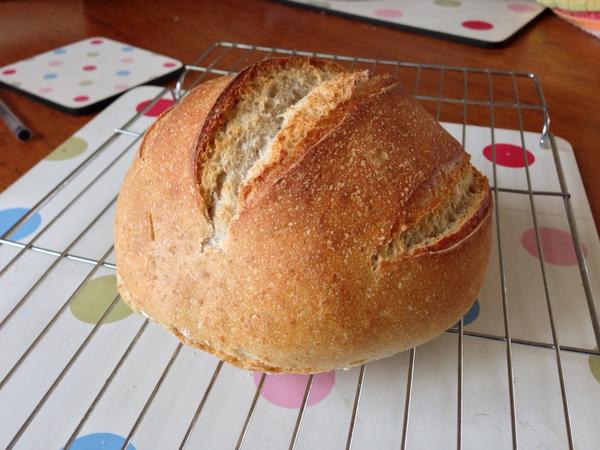I've done my own starter, many years ago, and it really is quite simple. However...
- In the beginning, the smell will be quite awful. Keep the daily throw-half-away feeding ritual going for a week. Your starter will stabilize with lacobacilli making it more acidic and killing off competing bacteria. Yeast are, of course, perfectly happy in the acidic environment.
- Once you've got a stable starter, you can stuff it in the fridge. Just do the throw a bunch away and restart it thing prior to attempting to bake with it, so you've got freshly active bacteria and yeast.
- Yeast replicate faster than bacteria. You can observe this because you'll get a bubbly dough within a few hours, but if you leave it alone for a day or two, it will get increasingly sour, and the gluten will be destroyed by the lactic acid given off by the bacteria.
- I've been following
Peter Reinhart's various bread books on baking technique and have settled into a "binary" method where you make two separate doughs. One will have the sourdough starter, while the other is a "soaker" (flour, water, salt, nothing else). Since I like to do rye and wheat breads, I'll do the sourdough with the wheat/rye grain, and the soaker with the white flour. This means that less of the white gluten is destroyed by the lactic acid. You mix these up, leave them at room temperature, combine 24 hours later, and bake within a few hours of combining. Yields lovely bread. You can do the mixing with a machine, but if you do it by hand, you get a nice marbled quality to the bread. Tastes the same either way.






